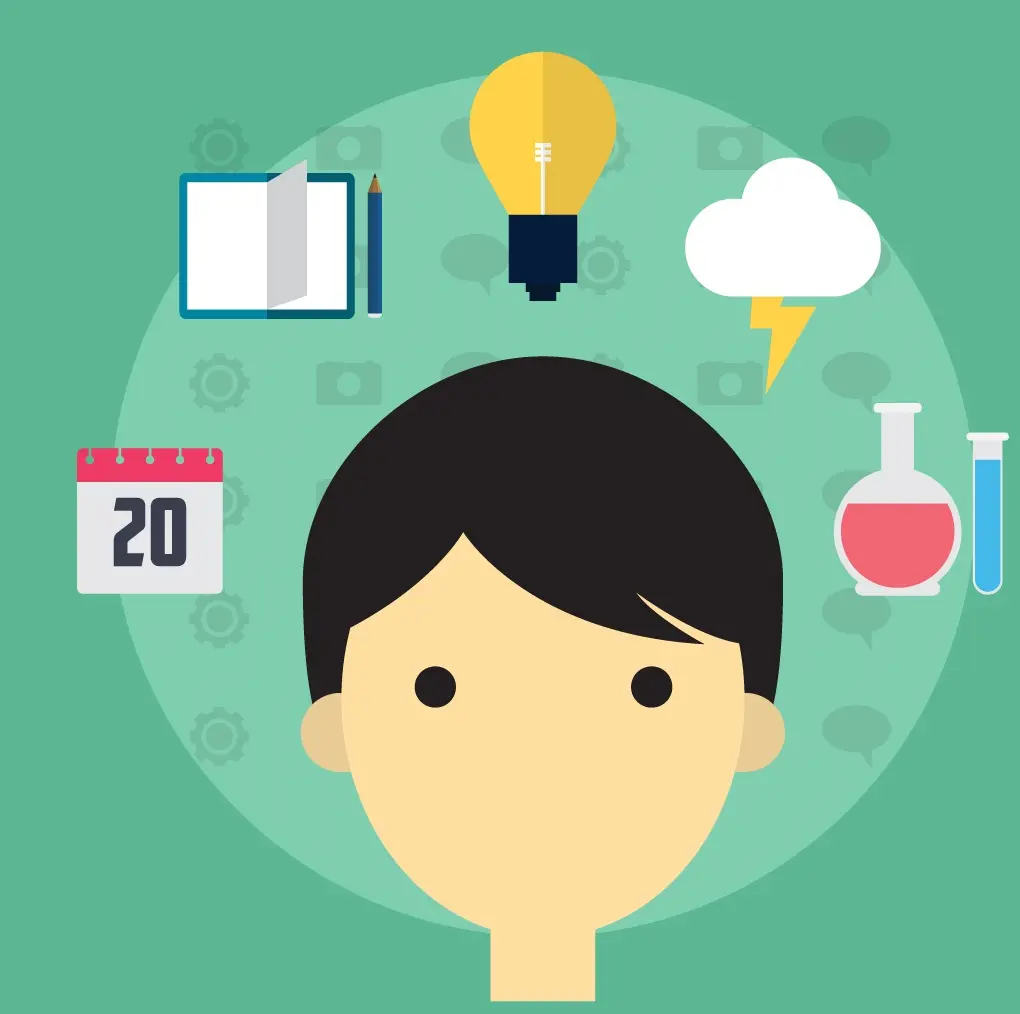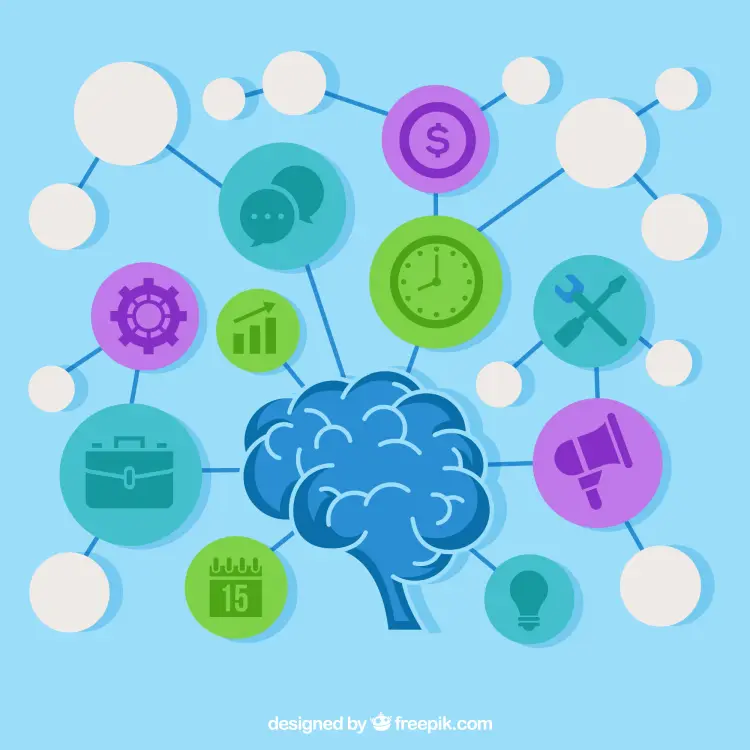Understanding Executive Functioning Skills: Key to Academic and Life Success

Executive functioning skills are often described as the “management system” of the brain, helping individuals organize, plan, and complete tasks effectively. These skills encompass a range of cognitive processes—like working memory, flexible thinking, and self-control—that allow people to regulate their behaviors and emotions in order to achieve goals. For students, strong executive functioning skills are essential for academic success, personal growth, and future career success. In fact, research highlights the importance of executive functioning as an indicator of a student’s ability to thrive, both inside and outside the classroom. What Are Executive Functioning Skills? Executive functioning skills typically include three core components: 1. Working Memory: The ability to hold information in mind while using it to complete a task. For students, working memory is essential for activities like solving math problems, following multi-step instructions, or remembering the steps in a science experiment. 2. Cognitive Flexibility: Also known as flexible thinking, this skill allows students to shift their thinking or approach to problems when necessary. Cognitive flexibility is critical when students encounter challenges, as it helps them adapt to new information or consider alternative solutions. 3. Inhibitory Control: This skill involves self-regulation—suppressing impulses, ignoring distractions, and maintaining focus. In the classroom, inhibitory control is necessary for listening attentively, waiting one’s turn, and resisting temptations that could disrupt learning. Why Are Executive Functioning Skills Important? Studies show that executive functioning is strongly linked to academic success. According to research published by the National Institutes of Health (NIH), students with well-developed executive functioning skills tend to perform better in school across various subjects. For example, a study of elementary students found that working memory was a significant predictor of reading comprehension and math performance. Similarly, cognitive flexibility has been shown to enhance problem-solving skills, while inhibitory control supports focus and persistence. In the long term, strong executive functioning skills can have a lasting impact. According to a study from the University of Pittsburgh, children with better executive functioning skills at age 5 were more likely to achieve higher levels of education and income by their 30s, highlighting the role these skills play in lifelong success. The Challenges and Prevalence of Executive Functioning Deficits Not all students develop executive functioning skills at the same rate, and many struggle with these abilities. In fact, it’s estimated that as many as 10-15% of students may have executive functioning deficits, which can significantly impact their academic performance and social interactions. For example, students with ADHD often experience difficulties with executive functioning, particularly in areas like attention regulation and impulse control. These students may struggle with tasks like completing assignments on time, organizing materials, and maintaining focus during lessons. A lack of executive functioning skills doesn’t just affect academics—it also impacts social and emotional development. Students with weaker executive functioning skills may struggle with managing their emotions, leading to issues with peer relationships, stress, and even anxiety. According to a study from the American Psychological Association, children with low executive functioning skills are more likely to experience social challenges and face difficulties adjusting to school environments. Supporting the Development of Executive Functioning Skills Fortunately, executive functioning skills can be strengthened with practice, guidance, and supportive environments. Here are some evidence-based strategies to help students develop these skills: 1. Break Down Tasks: For students who struggle with organization, breaking down large tasks into smaller, manageable steps can make projects feel less overwhelming. This strategy supports working memory and helps students approach tasks systematically. 2. Use Visual Supports: Visual aids, like checklists or graphic organizers, can help students keep track of steps and reduce cognitive load. Research shows that visual tools are particularly effective in supporting working memory and organization. 3. Practice Mindfulness and Self-Regulation: Teaching mindfulness techniques, like deep breathing or reflection exercises, can help students improve inhibitory control. Studies have shown that mindfulness practice is linked to better focus, emotional regulation, and even improved academic outcomes. 4. Encourage Flexibility: Create opportunities for students to practice flexible thinking by introducing open-ended questions or creative problem-solving activities. By fostering an environment where students can explore different solutions, educators can help strengthen cognitive flexibility. Final Thoughts Executive functioning skills are foundational for students’ academic and personal success. By developing these abilities, students gain the tools they need to manage complex tasks, solve problems, and navigate social interactions more effectively. As educators and parents, providing structured support, positive reinforcement, and targeted strategies can make a significant difference. These efforts not only help students succeed in school but also equip them with essential skills for lifelong achievement.
Keeping Students Motivated Through the Winter Season

As temperatures drop and the holiday season approaches, keeping students motivated in their studies can be a real challenge. The shorter days, colder weather, and upcoming holiday festivities can all affect energy levels, focus, and even mood, impacting students’ academic performance. Winter, however, can also be an ideal time to build resilience, boost engagement, and help students stay on track academically. With the right strategies, teachers, parents, and students can work together to create an environment that encourages learning and keeps motivation high. In this blog, we’ll discuss why students might struggle with motivation in winter, along with some practical tips to keep them engaged and enthusiastic about their studies throughout the season. 1. Recognize the Impact of Winter on Students’ Motivation Winter can bring a variety of changes that may impact students’ motivation levels: • Seasonal Affective Disorder (SAD): This form of seasonal depression can affect people of all ages, including children and teens. Reduced sunlight exposure during winter can lead to lower energy levels, changes in mood, and decreased interest in activities, including academics. • Physical Changes: Shorter days and colder weather often mean less physical activity, which can impact mental well-being. Exercise is known to boost endorphins and improve focus, so reduced movement can leave students feeling sluggish. • Holiday Distractions: The winter months are packed with holiday breaks, family gatherings, and other events that can pull students’ focus away from schoolwork. Excitement about upcoming festivities may make it difficult for students to focus on academic tasks. Awareness of these factors is essential, as it helps educators and parents understand the reasons behind declining motivation and approach students with empathy. 2. Emphasize the Power of Routine Routines can create a sense of stability and predictability, especially during a season when excitement and distractions are abundant. Creating a strong routine helps reinforce that academic responsibilities are a consistent priority, even when other activities vie for attention. • Daily Study Time: Encourage students to establish a specific time each day dedicated to studying or completing assignments. Consistency reinforces the habit, making it easier for students to focus during these designated times. • “Power Hours”: Using short, intensive study sessions like “power hours” can help students tackle challenging assignments in a concentrated period. These blocks of time are typically around 45 minutes, with a 5-10 minute break afterward, allowing for maximum productivity without burnout. • Wind-Down Routine: A calming wind-down routine at night can help students decompress after a day of activities. This routine can help signal to the brain that it’s time to rest, making it easier to recharge and face academic tasks with a fresh mind the next day. 3. Make Use of Natural Light Natural light has a huge impact on mood and energy levels. With shorter days in winter, students have less exposure to daylight, which can contribute to feelings of sluggishness or demotivation. • Daylight Study Sessions: Whenever possible, schedule study sessions or breaks during daylight hours. Working near a window or taking short breaks outside can help students absorb more natural light, potentially boosting mood and focus. • Classroom Adjustments: If you’re an educator, consider rearranging the classroom to maximize natural light exposure. This simple change can help create a more inviting and energizing learning environment. • Light Therapy Lamps: For students especially affected by reduced daylight, light therapy lamps can mimic natural light and may help improve mood and alertness. Using these lamps for 20-30 minutes in the morning has been shown to be beneficial for some individuals with SAD or general winter-related sluggishness. 4. Set Short-Term Goals and Celebrate Progress During the winter season, long-term academic goals might feel overwhelming. Breaking them down into smaller, short-term goals can make achievements feel more attainable and rewarding. • Weekly Checkpoints: Set weekly academic goals, such as finishing a certain chapter or mastering a particular skill. These goals are easier to reach and provide regular opportunities to celebrate progress, keeping students motivated. • Reward Systems: Implementing a reward system, where students earn small rewards for reaching their goals, can add extra motivation. Rewards could be as simple as extra screen time, a special treat, or a fun activity. • Visual Progress Trackers: Having a visual representation of their progress, like a checklist or a goal chart, can also help students stay motivated by showing them how much they’ve accomplished, even if progress feels slow. 5. Encourage Creative and Seasonal Learning Activities Embracing the winter season by incorporating it into the curriculum or study activities can make learning more engaging and enjoyable. Creative, hands-on activities tied to winter themes can make academic tasks feel less routine and more exciting. • Winter-Themed Projects: Consider incorporating winter themes into lessons, such as studying snowflakes for a science project, reading winter-themed literature, or creating art inspired by winter scenes. • Outdoor Learning: On days when the weather permits, consider outdoor learning activities. A nature walk to observe seasonal changes or a winter-themed scavenger hunt can make learning feel fresh and exciting, even during the colder months. • Holiday-Based Lessons: If you’re teaching during December, consider adding holiday-based themes into lessons. For example, students might calculate the cost of holiday gifts in a math class or learn about holiday traditions around the world in a social studies class. 6. Foster a Supportive, Positive Environment In winter, students might need a little extra support to stay engaged. Building a supportive learning environment that fosters positivity, empathy, and encouragement can make a significant difference. • Check-Ins: Regularly check in with students about how they’re feeling. Ask open-ended questions like, “What’s been the hardest part of studying lately?” or “How can we make your study time easier or more enjoyable?” • Encouragement and Praise: Recognize and praise students’ efforts, not just their outcomes. Acknowledging hard work, resilience, and progress can motivate students to keep pushing forward, even if winter feels like a slow season. • Peer Support: In a classroom setting, peer study groups can help students stay accountable and motivated. Working
Effective Goal-Setting Strategies for Success

Setting goals is an essential part of personal and professional growth. Clear goals provide direction, motivation, and a sense of purpose. However, not all goals are created equal. To maximize your chances of success, it’s crucial to use effective goal-setting strategies. Here are some key techniques to help you set and achieve your goals. 1. Use the SMART Framework The SMART criteria are a popular method for setting effective goals. Ensure your goals are:– Specific: Clearly define what you want to achieve. Instead of saying, “I want to get fit,” specify, “I want to run a 5K in three months.” – Measurable: Include criteria for measuring progress. This helps you track your advancement and stay motivated.– Achievable: Set realistic goals that are attainable given your current circumstances. Challenging yet achievable goals promote growth without leading to frustration.– Relevant: Ensure your goals align with your broader life objectives and values. This relevance enhances motivation and commitment.– Time-bound: Set a deadline for your goal. A specific time frame creates urgency and prompts action. 2. Break Goals into Smaller Steps Large goals can feel overwhelming. Break them down into smaller, manageable tasks to make them less daunting. This approach allows you to focus on one step at a time and celebrate small victories along the way. For example, if your goal is to write a book, start by outlining chapters, then set a daily word count to reach. 3. Write Down Your Goals Putting your goals in writing makes them more tangible and reinforces your commitment. Create a goal-setting journal or use digital tools to document your objectives and progress. Regularly revisiting your written goals can keep you focused and accountable. 4. Stay Flexible Life can be unpredictable, and circumstances may change. Be prepared to adjust your goals as needed. Flexibility allows you to adapt to new situations while still working toward your overall objectives. If you encounter obstacles, reassess your plan and make necessary adjustments rather than abandoning your goal entirely. 5. Share Your Goals Sharing your goals with friends, family, or colleagues can create a support system that encourages accountability. Others can provide motivation, constructive feedback, and help you stay on track. Consider finding an accountability partner who shares similar goals or interests. 6. Monitor Your Progress Regularly review your goals and track your progress. This can be done through weekly or monthly check-ins. Reflecting on what you’ve accomplished helps maintain motivation and allows you to identify areas where you may need to adjust your approach. Conclusion Effective goal-setting is a powerful tool for achieving personal and professional success. By using strategies like the SMART framework, breaking goals into smaller steps, and staying flexible, you can set yourself up for success. Remember to celebrate your achievements along the way, no matter how small, and stay committed to your journey. With determination and the right strategies, you can turn your aspirations into reality.
The Power of Self-Monitoring: A Path to Personal Growth

Self-monitoring is a valuable skill that involves paying attention to your thoughts, emotions, behaviors, and performance in various situations. This process allows individuals to assess their progress towards personal goals and make necessary adjustments to improve their overall well-being. Whether in academics, professional settings, or personal development, self-monitoring can enhance self-awareness and foster positive change. What is Self-Monitoring? At its core, self-monitoring is the practice of observing and evaluating your own actions and reactions. It involves reflecting on how you respond to different situations and understanding the impact of your behaviors on yourself and others. This can include tracking habits, analyzing emotional responses, or assessing performance in tasks. By doing so, you become more aware of your strengths and areas for improvement. Why is Self-Monitoring Important? 1. Enhanced Self-Awareness: Self-monitoring encourages a deeper understanding of your thoughts and behaviors. This awareness helps identify patterns, triggers, and areas where changes may be beneficial.2. Goal Achievement: By regularly tracking your progress, you can stay focused on your objectives and make adjustments as needed. This increases accountability and motivation to achieve your goals.3. Improved Emotional Regulation: Monitoring your emotional responses can lead to better emotional control. Recognizing triggers allows you to respond more thoughtfully rather than reacting impulsively.4. Skill Development: Self-monitoring can highlight specific skills that need development. By identifying strengths and weaknesses, you can tailor your learning and improvement strategies accordingly. Tips for Effective Self-Monitoring 1. Set Clear Goals: Define what you want to achieve and establish measurable objectives. This clarity will guide your self-monitoring efforts.2. Keep a Journal: Document your thoughts, feelings, and behaviors regularly. Reflecting on these entries can reveal patterns and insights about your progress.3. Use Technology: Leverage apps and tools designed for tracking habits, productivity, and emotional states. These can simplify the self-monitoring process and provide valuable data.4. Regular Check-Ins: Schedule periodic reviews of your goals and progress. This practice helps you stay accountable and make necessary adjustments to your approach. Conclusion Self-monitoring is a powerful tool for personal growth and development. By fostering self-awareness, enhancing emotional regulation, and supporting goal achievement, it can significantly improve your quality of life. Embrace the practice of self-monitoring, and watch as it transforms your journey toward success and fulfillment.
The Importance of Working Memory

Working memory is vital for several cognitive tasks 1. Learning: It plays a crucial role in acquiring new information. For instance, when learning a new concept, working memory allows you to hold onto the relevant details while you make connections with prior knowledge.2. Problem-Solving: Effective problem-solving often requires holding multiple pieces of information simultaneously. Working memory enables you to analyze different aspects of a problem and evaluate potential solutions.3. Language Comprehension: Understanding spoken and written language relies heavily on working memory. It allows individuals to keep track of the meanings of sentences and phrases while integrating new information.4. Decision-Making: In decision-making processes, working memory helps evaluate options and weigh the pros and cons, leading to more informed choices. Enhancing Working Memory Given its significance, improving working memory can have substantial benefits. Here are some strategies to enhance this cognitive skill:1. Practice Mental Exercises: Engaging in activities that challenge your memory, such as puzzles, memory games, or brain-training apps, can help strengthen working memory.2. Mindfulness and Focus: Practicing mindfulness techniques can enhance concentration, allowing for better management of information in working memory.3. Chunking Information: Breaking information into smaller, manageable units can make it easier to remember. For instance, when trying to memorize a long string of numbers, grouping them can be more effective.4. Regular Physical Activity: Exercise has been shown to boost cognitive function, including working memory. Incorporating physical activity into your routine can have lasting benefits for brain health. Conclusion Working memory is a vital component of cognitive functioning that impacts our ability to learn, solve problems, and navigate daily tasks. By understanding its mechanisms and importance, we can appreciate the role it plays in our lives and take proactive steps to enhance this critical skill. Whether through mental exercises, mindfulness practices, or simply staying active, improving working memory can lead to better cognitive performance and overall success.
Understanding Working Memory: The Key to Cognitive Function

Working memory is a crucial aspect of our cognitive functioning that allows us to hold and manipulate information in our minds for short periods. It plays an essential role in various everyday activities, from solving math problems and following directions to engaging in conversations and making decisions. In this blog, we’ll explore what working memory is, how it functions, and its significance in our daily lives. What is Working Memory? Working memory is often described as the brain’s “scratchpad.” It is a limited-capacity system that temporarily stores and processes information. This cognitive system enables individuals to keep information active while performing tasks that require mental manipulation. For example, when you try to remember a phone number long enough to dial it, or when you solve a math problem by holding numbers in your mind, you’re utilizing your working memory. Psychologists typically differentiate between working memory and short-term memory. While short-term memory refers to the capacity to hold information for a brief period without manipulation, working memory involves not just storage but also the active processing of that information. How Does Working Memory Function? Working memory consists of several components, as proposed by psychologist Alan Baddeley in his model. The primary components include: 1. The Central Executive: This is the control center that directs attention and coordinates information from different sources. It is responsible for managing cognitive tasks and ensuring that relevant information is prioritized.2. Phonological Loop: This component is responsible for processing verbal information. It allows individuals to rehearse and manipulate spoken and written language, making it essential for tasks like reading and comprehension.3. Visuospatial Sketchpad: This system deals with visual and spatial information. It helps us visualize and manipulate images and objects, which is crucial for tasks such as navigation and solving puzzles.4. Episodic Buffer: Added later to Baddeley’s model, this component integrates information from the phonological loop and visuospatial sketchpad with long-term memory, allowing for a more cohesive understanding of experiences.
Understanding Impulse Control: The Key to Better Decision-Making

Impulse control is a critical skill that plays a vital role in our daily lives. It encompasses our ability to manage our immediate desires and reactions in favor of long-term goals and values. Whether it’s resisting the temptation to indulge in unhealthy foods, avoiding impulsive purchases, or managing emotions during stressful situations, mastering impulse control can lead to improved decision-making, better relationships, and a more fulfilling life. This blog will explore what impulse control is, why it matters, and effective strategies to enhance this essential skill. What is Impulse Control? Impulse control refers to the ability to delay gratification, resist short-term temptations, and make thoughtful decisions rather than acting on instinct. It involves self-regulation, emotional regulation, and the capacity to think through the potential consequences of one’s actions. Impulse control is closely linked to the prefrontal cortex of the brain, the area responsible for higher-level thinking, planning, and decision-making. Why is Impulse Control Important? 1. Better Decision-Making: Strong impulse control allows individuals to weigh the pros and cons of a situation, leading to more rational choices. This ability is crucial in various contexts, from personal relationships to financial decisions. 2. Emotional Regulation: Impulse control helps manage emotions effectively. By resisting the urge to react immediately to feelings like anger or frustration, individuals can respond in a more constructive manner. 3. Healthier Relationships: Effective impulse control can enhance interpersonal relationships. By practicing patience and empathy, individuals can avoid conflicts and misunderstandings, fostering healthier connections with others. 4. Academic and Professional Success: In academic and professional settings, impulse control contributes to focus and perseverance. Individuals who can resist distractions and stay committed to their tasks are more likely to achieve their goals. 5. Physical Health: Impulse control is vital for maintaining a healthy lifestyle. It allows individuals to resist unhealthy foods, avoid smoking or excessive drinking, and commit to regular exercise. Factors Affecting Impulse Control Several factors can influence an individual’s impulse control, including: 1. Age: Children and adolescents often struggle with impulse control due to the ongoing development of the prefrontal cortex. As individuals age, they typically develop stronger impulse control abilities. 2. Emotional State: Stress, anxiety, and depression can impair impulse control, making it more challenging to resist immediate temptations or emotional reactions. 3. Environmental Cues: Situational factors, such as being in a tempting environment or around people who encourage impulsive behavior, can weaken self-control. 4. Biological Factors: Genetics and neurobiology play a role in impulse control. Some individuals may be predisposed to struggle with self-regulation due to their brain chemistry. Strategies to Improve Impulse Control 1. Practice Mindfulness: Mindfulness techniques, such as meditation and deep breathing exercises, can enhance self-awareness and help individuals recognize their impulses before acting on them. By taking a moment to pause and reflect, you can make more conscious choices. 2. Set Clear Goals: Clearly defined goals provide direction and motivation. When you have specific, achievable goals in mind, you’re more likely to resist short-term temptations that may derail your progress. Break your goals down into smaller, actionable steps to maintain focus. 3. Identify Triggers: Understanding what triggers your impulses can help you develop strategies to manage them. Keep a journal to track situations where you struggle with impulse control and identify patterns. Once you recognize your triggers, you can work on avoiding or coping with them more effectively. 4. Develop Alternative Responses: Instead of succumbing to an impulse, create a list of alternative actions you can take. For example, if you feel the urge to snack on unhealthy food, consider going for a walk or drinking water instead. Having a plan in place can make it easier to resist immediate temptations. 5. Use the “10-Second Rule”: When faced with an impulse, pause for ten seconds before responding. This brief delay allows you to assess the situation and make a more thoughtful decision. During this time, consider the potential consequences of acting on your impulse. 6. Limit Exposure to Temptations: Take proactive steps to reduce exposure to situations that trigger impulsive behavior. For instance, if you find it difficult to resist online shopping, unsubscribe from promotional emails or delete shopping apps from your phone. 7. Build Self-Discipline: Engage in activities that promote self-discipline, such as setting and adhering to daily routines or practicing delayed gratification. The more you exercise self-control, the stronger it becomes over time. 8. Seek Support: Surround yourself with supportive friends and family who encourage positive behavior and can help you stay accountable. Share your goals with them, and don’t hesitate to ask for help when needed. Conclusion Impulse control is an essential skill that can significantly impact various aspects of life, from decision-making to emotional well-being. By understanding the importance of impulse control and implementing strategies to improve it, individuals can cultivate greater self-discipline and make choices that align with their long-term goals. While developing impulse control may take time and practice, the rewards are well worth the effort. Embracing mindfulness, setting clear goals, identifying triggers, and seeking support can all contribute to a more balanced and fulfilling life. As you enhance your impulse control, you’ll find yourself making better decisions, enjoying healthier relationships, and ultimately living a life that reflects your true values and aspirations.
Mastering Time Management: Essential Skills for Success

The Importance of Time Management 1. Increased Productivity: Time management enables you to allocate your hours efficiently, leading to more tasks completed in less time. By prioritizing effectively and focusing on high-impact activities, you can maximize your productivity. 2. Reduced Stress: When you manage your time well, you’re less likely to feel overwhelmed by looming deadlines and an ever-growing to-do list. Effective time management allows for better planning, which can significantly reduce anxiety and stress. 3. Improved Work-Life Balance: Striking a balance between work, personal life, and leisure activities is vital for mental and emotional well-being. Good time management skills enable you to create space for relaxation and enjoyment, preventing burnout. 4. Better Decision Making: When you have a clear understanding of your time and priorities, you can make more informed decisions. This clarity helps you to evaluate opportunities and challenges objectively. 5. Enhanced Self-Discipline: Managing your time requires self-control and discipline. By developing these skills, you cultivate a sense of responsibility and ownership over your tasks, leading to greater success in various aspects of life. Key Time Management Skills Goal Setting Setting clear, achievable goals is the foundation of effective time management. Here are some tips for setting effective goals: – Use the SMART Framework: Goals should be Specific, Measurable, Achievable, Relevant, and Time-bound. This framework helps you create clear objectives that can guide your planning. – Break Down Larger Goals: Divide big goals into smaller, manageable tasks. This makes the process less daunting and allows for incremental progress. – Prioritize Your Goals: Determine which goals are most important and need immediate attention. This prioritization helps you focus your energy where it matters most. Prioritization Effective prioritization ensures that you focus on tasks that align with your goals. Here are some strategies to prioritize effectively: – Eisenhower Matrix: This tool helps categorize tasks into four quadrants based on urgency and importance: – Urgent and Important: Do these tasks first. – Important but Not Urgent: Schedule these tasks. – Urgent but Not Important: Delegate these tasks if possible. – Neither Urgent Nor Important: Consider eliminating these tasks. – ABC Method: Label tasks as A (most important), B (important), or C (less important) to help clarify your focus. Planning Planning is essential for effective time management. It provides structure to your day and helps you allocate time for each task. Here are planning techniques to consider: – Daily and Weekly Planning: Spend time each day and week outlining your tasks. This helps you visualize what needs to be done and ensures that you stay on track. – Time Blocking: Allocate specific blocks of time for different activities or tasks. This technique reduces multitasking and improves focus. – Use Digital Tools: Utilize calendars, task management apps, and planners to organize your schedule. Tools like Google Calendar, Trello, or Asana can help you keep everything in one place. Time Tracking Understanding how you spend your time is critical for effective management. Here’s how to track your time: – Log Your Activities: Keep a detailed log of your daily activities for a week. This will help you identify time-wasting habits and areas for improvement. – Analyze Your Data: Review your time log to see where you can cut back or improve. Are there tasks that take longer than expected? Are there distractions that you can eliminate? – Adjust Accordingly: Use the insights gained from tracking your time to adjust your schedule and improve your time management strategies. Avoiding Procrastination Procrastination is a common barrier to effective time management. Here are strategies to overcome it: – Identify Triggers: Recognize what causes you to procrastinate. Is it fear of failure, boredom, or feeling overwhelmed? Understanding your triggers can help you develop strategies to combat them. – Break Tasks Into Smaller Steps: Tackle large tasks by breaking them into smaller, manageable parts. This approach makes it easier to get started and maintain momentum. – Set Timers: Use techniques like the Pomodoro Technique, which involves working for 25 minutes and then taking a 5-minute break. This structure can help keep you focused and reduce the urge to procrastinate. Learning to Say No Taking on too much can lead to stress and overwhelm. Learning to say no is a crucial skill in time management. Here’s how to do it effectively: – Evaluate Commitments: Before agreeing to new tasks or projects, assess whether they align with your goals and current workload. – Be Honest and Respectful: When saying no, be straightforward but polite. You don’t need to provide lengthy explanations; a simple “I appreciate the offer, but I can’t take on any more commitments right now” is often sufficient. Reviewing and Reflecting Regularly reviewing your time management practices is essential for ongoing improvement. Here’s how to do it: – Weekly Reviews: Set aside time each week to reflect on your accomplishments and challenges. Assess what worked, what didn’t, and why. – Adjust Goals and Plans: Based on your reflections, adjust your goals and plans as needed. Flexibility is key to effective time management. – Celebrate Achievements: Acknowledge your successes, no matter how small. Celebrating achievements boosts motivation and encourages continued progress. Conclusion Mastering time management is a vital skill that can transform your personal and professional life. By developing key skills such as goal setting, prioritization, planning, time tracking, and self-discipline, you can take control of your schedule and make the most of every day. Remember that effective time management is not about doing more but about making thoughtful choices that align with your values and priorities. Start implementing these strategies today, and watch how improved time management can lead to greater productivity, reduced stress, and a more balanced life. Embrace the journey of mastering your time, and unlock your full potential for success.
The Power of Planning and Organization: Unlocking Your Potential

In our fast-paced world, planning and organization have become essential skills that can significantly enhance productivity and reduce stress. Whether you’re a student juggling assignments, a professional managing projects, or a homemaker coordinating family activities, effective planning and organization can lead to greater success and fulfillment in all areas of life. Understanding Planning and Organization At its core, planning involves setting goals and outlining steps to achieve them, while organization refers to arranging resources and tasks systematically. Together, these skills create a framework that helps individuals navigate their responsibilities and maximize their potential. The Importance of Planning 1. Goal Clarity: Planning forces you to define your objectives clearly. By setting specific, measurable, attainable, relevant, and time-bound (SMART) goals, you create a roadmap for success. Clarity enhances motivation and helps you prioritize tasks that align with your goals. 2. Time Management: One of the most significant benefits of planning is improved time management. By allocating time slots for tasks and activities, you can avoid procrastination and ensure that you’re making steady progress toward your objectives. 3. Stress Reduction: When you have a plan in place, uncertainty diminishes. Knowing what you need to do and when you need to do it can alleviate anxiety. A well-thought-out plan allows you to anticipate challenges and devise solutions in advance. 4. Resource Allocation: Planning helps you identify the resources (time, money, personnel, etc.) needed to accomplish your goals. This foresight allows you to allocate your resources efficiently, minimizing waste and maximizing effectiveness. The Importance of Organization 1. Increased Productivity: An organized environment promotes efficiency. When everything has a designated place, you waste less time searching for items or information, allowing you to focus on the task at hand. 2. Enhanced Focus: A cluttered workspace can lead to distractions. By organizing your environment, you create a conducive atmosphere for concentration, which is vital for producing high-quality work. 3. Improved Workflow: Organization allows for a more streamlined workflow. By establishing systems for managing tasks and information, you can ensure a smooth transition from one task to another, reducing bottlenecks and delays. 4. Better Decision Making: When you’re organized, you have easier access to information and resources, which enhances your ability to make informed decisions. A systematic approach to organization means that you can analyze situations and respond appropriately without feeling overwhelmed. Effective Planning Strategies 1. Set Clear Goals: Begin by identifying your long-term and short-term goals. Write them down and break them into manageable tasks. This approach creates a sense of direction and helps maintain focus. 2. Create a Timeline: Establish deadlines for each task. Use tools like calendars or project management apps to visualize your timeline. This step will keep you accountable and ensure that you stay on track. 3. Prioritize Tasks: Not all tasks are created equal. Use the Eisenhower Matrix to categorize tasks based on urgency and importance. Focus on high-priority tasks first, and delegate or eliminate less critical ones. 4. Review and Adjust: Regularly review your progress. Reflect on what’s working and what isn’t. Be flexible and willing to adjust your plan as needed to accommodate changes in circumstances or priorities. Effective Organization Techniques 1. Declutter Regularly: Take the time to clear out unnecessary items from your workspace and digital files. A clutter-free environment promotes clarity and focus. 2. Use Organizational Tools: Leverage tools like folders, labels, and storage solutions to keep your physical and digital spaces organized. Consider using apps for task management, note-taking, and calendar scheduling to keep everything in one place. 3. Establish Routines: Create daily or weekly routines that incorporate both planning and organization. Set aside specific times for reviewing tasks, organizing your workspace, and updating your plans. 4. Implement Systems: Develop systems for recurring tasks, such as meal planning, project management, or household chores. This automation reduces decision fatigue and makes organization second nature. Overcoming Common Obstacles While the benefits of planning and organization are clear, many individuals face obstacles in implementing these skills. Here are some common challenges and strategies to overcome them: 1. Procrastination: The desire to put off tasks can stem from fear of failure or feeling overwhelmed. Combat procrastination by breaking tasks into smaller, more manageable steps, and reward yourself for completing them. 2. Perfectionism: Striving for perfection can hinder progress. Accept that not every task needs to be flawless. Focus on completing tasks to the best of your ability and allow room for improvement over time. 3. Lack of Motivation: If you’re struggling to find motivation, revisit your goals. Remind yourself why you set these objectives and visualize the benefits of achieving them. Consider finding an accountability partner to share your progress with. 4. Overcommitment: It’s easy to take on too much, leading to stress and burnout. Learn to say no to commitments that don’t align with your goals or priorities. Focus on quality over quantity in your tasks. Conclusion Planning and organization are not just skills; they are essential life strategies that can enhance your productivity, reduce stress, and improve your overall quality of life. By investing time in developing these skills, you’ll create a strong foundation for achieving your goals and fulfilling your potential. Remember, the journey to becoming more organized and planned is a continuous process—start small, stay consistent, and celebrate your progress along the way. Embrace the power of planning and organization, and unlock a more productive and fulfilling life.
Spanish Summer Club



